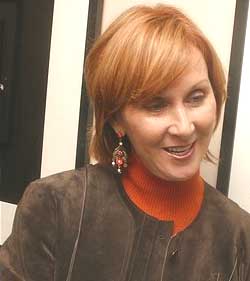
Black Radio Speaks with Fork Tongue
by Paul Porter of Industryears.com

Paul Porter is a 30 year industry vet and former music programmer for Radio One & BET
It is time that broadcasters start telling the truth. The recent flood of one sided information by radio on the pending “HR 848 – Performance Rights Act” is uncovering a much larger problem. The First Amendment calls for “Freedom of Speech”, but unfortunately broadcasters continue to feed misinformation to millions of Americans, without a murmur of opposing opinion.
Radio One, Founder Cathy Hughes has rediscovered her microphone after a ten year hiatus. While shaping the Performance Rights Act as an end to Black Radio, Hughes and her staff have done a great job of concealing the facts.
In a series of PSA annoucements, Hughes has framed HR 848 as the end of Black radio. Broadcasters, in this difficult economy have not allowed advertising dollars to be spent by denying air time to supporters of this Bill.
In Detroit, on Tuesday, Congressman John Conyers held a hearing on HR 848 at Wayne State University. While Joyner, Baisden and Hughes have continued to deliver blatant lies on air, the forum was the perfect situation to finally hear both sides.
Although invitations were extended to the entire broadcast community, only one representative stepped up to the mic. Rev. Al Sharpton, who’s syndicated Radio One show airs nationwide, presented his side and left without listening to the audience that pays his check.
Sharpton, on his show later that day only mentioned the forum as “one-sided” and failed to mention any of the stories shared by a short list of living legends, Dionne Warwick, Mary Wilson of the Supremes, Sam Moore, Duke Fakir, George Clinton and writer performer Rhymefest informed those in attendance of the simple facts on why performers should be paid for radio airplay.
Maybe if Sharpton, Baisden, Hughes or Joyner stop talking they might take the time to listen to some alarming facts.
*Performers are paid in over 30 countries, for radio airplay. Only the U.S., China, Iran and North Korea do not pay performers for radio airplay.
*Performers are paid for television, satellite radio, cable stations and Internet radio but not paid for terrestial (AM & FM) radio airplay.
*An additional $70 to $100 million will be paid to American artists for airplay from foreign countries.
What Black Radio is not telling you:
*Urban radio continues to be the most syndicated music format. While limiting voices and local issues, Black adults are 25 times more likely to hear syndication than Whites. Eliminating the messengers, by limiting the voices.
*Radio One, the nation’s largest African American broadcaster, has cut staff and 401k benefits for staffers, while awarding CEO Alfred Liggins a 10 million dollar bonus.
*Radio consistently makes millions from the recording industry, requiring Free promotions, Free product and Free performances that get charged back to the artist bottom line.
No matter what the color of radio ownership — serving local audiences with better music, information and content is the key to thriving business model. American radio must finally catch up with the rest of the free world and pay performers their just do.
It is time that radio broadcasters allow audiences to hear both sides of this important issue.
Paul Porter

 Yep you read the title right Black Minute Men. Below is an article illustrating the type of bullshit going on in LA that is making this Black-Brown situation spiral out of control. Yesterday cats were in Leimart Park boxing each other over this immigration issue. Ted Hayes a well known homeless activist, showed up with a couple of hundred people including Minute Men to lead an anti-immigrant demonstration. Of course all the media showed up and have been salivating at the jaws for this to happen- Black folks trying to smash on Brown folks in LA.
Yep you read the title right Black Minute Men. Below is an article illustrating the type of bullshit going on in LA that is making this Black-Brown situation spiral out of control. Yesterday cats were in Leimart Park boxing each other over this immigration issue. Ted Hayes a well known homeless activist, showed up with a couple of hundred people including Minute Men to lead an anti-immigrant demonstration. Of course all the media showed up and have been salivating at the jaws for this to happen- Black folks trying to smash on Brown folks in LA. 
